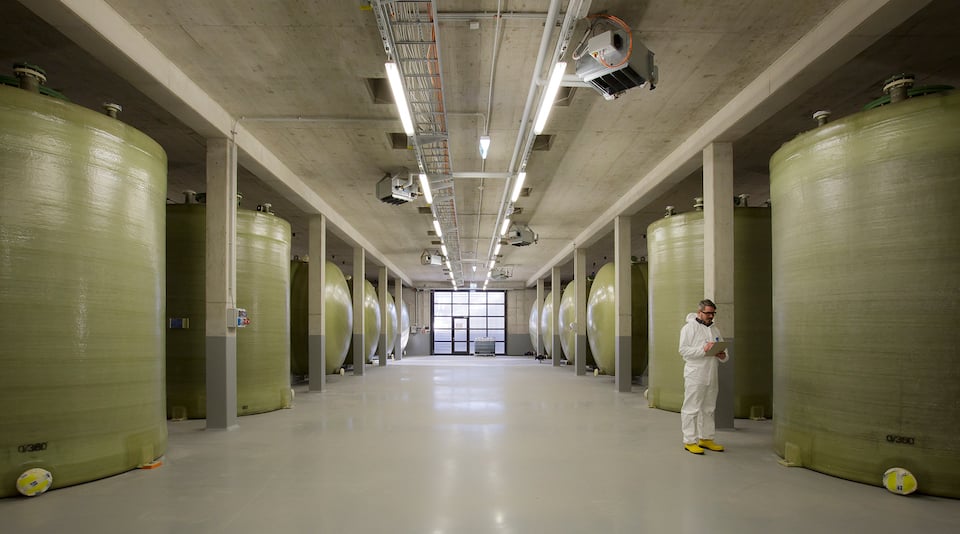
Industry stakeholder organisations from across Europe have come forward to urge the European Union to support the adoption of long-duration energy storage in its European Green Deal.
A joint letter has been signed by 11 national and continental groups, including the Environmental Coalition on Standards, the European Association for Storage of Energy (EASE), energy storage and renewables industry associations including Spanish storage industry groups AEPIBAL and ASEALEN, Flow Batteries Europe and the European Copper Institute.
Enjoy 12 months of exclusive analysis
- Regular insight and analysis of the industry’s biggest developments
- In-depth interviews with the industry’s leading figures
- Annual digital subscription to the PV Tech Power journal
- Discounts on Solar Media’s portfolio of events, in-person and virtual
Addressed to Commissioners, as well as to the European Union Council’s French Presidency and European Parliament committee members working on the Green Deal package, the letter emphasises the vital need for long-duration energy storage technologies to enable decarbonisation of the electricity sector.
The signees noted the US has moved towards enabling adoption and market participation of long-duration storage and “believe Europe cannot stay behind”.
The groups outlined the fundamental role of energy storage in adding flexibility, enabling the massive integration of renewable energy onto Europe’s electricity networks, by ensuring power availability and grid stability.
The letter argued that much more is needed than the storage systems of up to four hours’ storage duration that are typically being deployed for applications like ancillary services or replacing peaker plants.
Long-duration energy storage can also result in cost savings for transmission infrastructure, keeping electricity pricing more stable and affordable throughout Europe.
“This will keep electricity prices more stable and more affordable for the European end users. Large investments in energy infrastructure are needed for the energy transition, with capital flowing away from fossil fuels and toward clean power and other climate solutions,” the letter said.
“The years between now and 2030 are critical in the race to net zero, and long-term storage is still in its infancy, needing much stronger policy support and investment.”
Notably, as well as a push for long-duration energy storage at government level in the US — and also the UK — there was an indication this week that large end-users of energy with decarbonisation goals are increasingly interested in the technologies.
Microsoft and Google were the most prominent names among new members joining the Long Duration Energy Storage Council, Energy-Storage.news reported yesterday.
The CEO-led organisation comprises long-duration technology providers with a range of different solutions, along with end-users and energy companies — BP and mining giant Rio Tinto have already been members since it was founded last year.
The letter sent this week around the EU Green Deal put forward some specific asks and recommendations in two key areas, legal frameworks and funding:
Legal frameworks to support large-scale storage deployment
- New revenue streams should be created that the technologies could benefit from, the letter said, suggesting for example that Emissions Trading scheme design or incentives for renewable energy plants to be self-scheduling and dispatchable would encourage investment in storage.
- Easier permitting procedures should be put in place.
- One of the biggest barriers to energy storage for many European territories is the levying of double taxation and grid fees on energy storage: once when charging from the grid and once when injecting power into the grid. Regulators in some member states have already started dealing with these issues, others have yet to do so.
- Creation of a separate asset class for energy storage, rather than including it as one of — or as a subset of — generation, transmission, distribution or power consumption. Again, a topic under discussion in many parts of the world.
- Encouragement for electricity system operators to lengthen contract lengths for services provided by energy storage, to give more certainty to investors.
- Removal of barriers to energy storage delivering certain services, allowing system operators to stack revenues by providing multiple services. Allowing for multiple and maximised revenue streams would be the best way to make energy storage economically viable, the groups argued.
- European Commission modelling of the electricity system does not properly value the role of system flexibility, or the role of fast-responding energy storage assets.
Increasing funding for more technologies besides short-duration lithium-ion
- Funding should be offered to all classes and durations of energy storage, including research and development support, support for more demonstration projects and the endorsement of energy storage as “an important green investment opportunity”.






